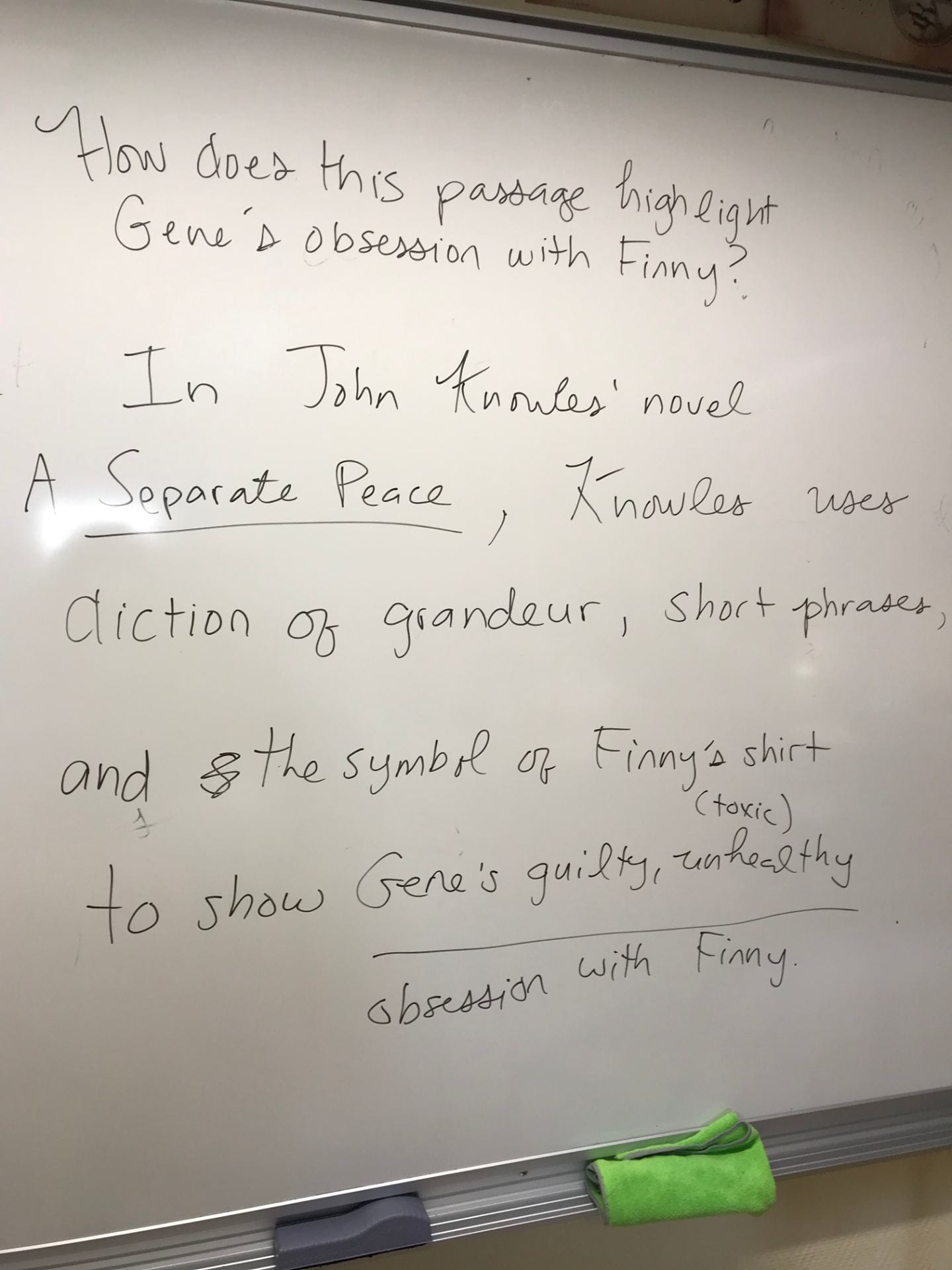Garden of Eden
-opening of the book : description of the tree-enormous, dark, foreboding
-the school itself is described like a paradise
-when Gene jounces the limb—moment of original sin/temptation/evil
–“the fall” from paradise/Eden — loss of innoncence
-Gene wants to “have the knowledge” because he is competitve in school and is jealous of Finny
“The beach shed its deadness and became a spectral gray white. Then more white, then gray, and finally it was totally white and stainless, as pure as the shores of Eden. Phineas still asleep on his dune, made me think of Lazarus, brought back to life by the touch of God”
Phineas as a Christ figure
pg 105 ” I lost part of myself to him, then a soaring sense of freedom revealed that this must have been my purpose from the first — to become a part of Phineas”
“I believe you it’s okay”
wave imagery/water imagery: baptismal imagery
-Finny breaks the swimming record but doesn’t want to show anyone — like Jesus’ miracles, Jesus’ humility
-“Phineas had been sitting, motionless, leaning slightly forward –not far from the position in which we prayed at Devon”
-trial = judgement day?
-resurrection= when Finny comes back to school after his first fall? –Carnaval?
-Finny’s death –Gene must “carry on” sees himself as an extension of Phineas/is not sad
-“God like” death on white marble stairs?
































